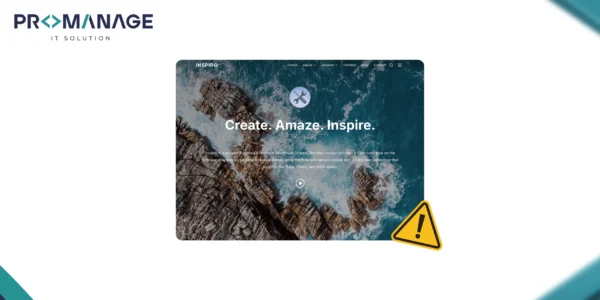Google: Overfocusing On Links Could Be A Waste Of Time

John Mueller from Google says that putting too much focus on backlinks could be a waste of time. He says to focus on quality over number of links because search engines can find websites in other ways, such as through sitemaps. This is in line with Google’s current trend of giving links less weight. Google’s changes have also made it seem like links aren’t as important as they used to be.
What does this entail for companies, bloggers, and online marketers, then? Is link building still important? And if it is, how much should we actually focus on it? Let’s put things in plain language.
Why Links Became So Important in SEO
It helps to know why links were important in the first place if you want to understand why Google says not to focus too much on them.
Google’s PageRank system was innovative when it first appeared. It evaluated a webpage’s significance by counting the number of other pages that connected to it. The concept was straightforward: a page must be valuable if many other websites link to it. Google was able to outperform its rivals thanks to this system.
Backlinks became one of the most important tools for ranking over time. Link building became a big business very quickly as SEOs learnt about it. As with most things in SEO, though, people started abusing it by buying links, spamming directories, or making networks of fake sites just to change the results.
In response, Google changed its algorithms to find and punish link-building tactics that aren’t honest. Links are still important, but they play a different role now. They are no longer the only thing that determines ranks.
Google says, “Don’t worry too much about links.”
Google employees, such as John Mueller and Gary Illyes, have said many times in interviews and public comments that website owners shouldn’t worry too much about backlinks. They made a good point: links are only one of many things that affect your ranking, and working too hard to get them might not pay off.
According to Google:
- Content quality comes first: A site can rank well even if it doesn’t have a lot of backlinks if it has unique, useful, and important content.
- User Experience Matter: Rankings depend on things like page speed, how well the site works on mobile devices, and how it’s organised.
- Links aren’t the only way to show trust: Google ranks sites based on things like the authority of the brand, how new the material is, and how relevant it is.
What is the message? Links aren’t dead, but it’s not a good idea to focus only on them and ignore other SEO basics.
When did link building stopped being useful

It takes work, imagination, and sometimes money to build links. But it’s easy to lose resources if it’s not done right. When you pay too much attention to links, the following things happen:
1. Ignoring the quality of the content
Some websites work hard to get links but don’t work to improve their own material. People won’t stay on your site if it has bad content, and if a lot of people leave quickly, that will hurt your results.
2. Putting quantity ahead of quality
One backlink from a reliable source will help more than ten backlinks that are spammy or don’t belong. Focusing too much on numbers instead of worth is a waste of time.
3. Doing things that could be dangerous
In the short term, buying links or using private blog networks (PBNs) might help, but Google’s algorithms are quick to spot trends that don’t make sense. This is not a good long-term plan because of the chance of getting fined.
4. Not paying attention to other SEO factors
You won’t be able to grow if you only work on building links and don’t pay attention to on-page SEO, site speed, mobile optimisation, or keyword meaning. Links are only one part of SEO; it’s a bigger picture.
What to Focus on Instead?
Google says it’s a waste of time to focus too much on links. What should we focus on instead? This is where you should put your energy:
1. Making content that is useful and valuable
Content is what SEO is all about. Over time, links and shares will automatically come to your content if it really solves problems, answers questions, or gives new perspectives. Think about tips that will always be useful, original research, or useful tools that your audience can use.
2. Making the user experience (UX) better
Google gives points to websites that make viewing them easy and fun. Think about:
- Pages that load quickly
- Easy to use on mobile devices
- Simple to use
- Sites with clean designs and no annoying ads
A good UX keeps people on your site longer, which tells Google that your site is trustworthy.
3. Getting More Power Through E-E-A-T
The things that Google looks at are Experience, Expertise, Authoritativeness, and Trustworthiness (E-E-A-T). Cite reliable sources and build your name in your field to show that your site is run by real experts.
4. Making changes based on search intent
You don’t need backlinks for all content to rank. Many search questions care more about being relevant and getting straight to the point. You can improve your rankings even if you don’t have a lot of links if you make sure your content is optimised to match what people are really looking for.
5. Getting traffic from different places
Spend money on social media, email marketing, paid ads, and building your brand instead of just SEO. Diversifying your approach makes your growth more stable and less reliant on backlinks.
Links Perform a Balanced Role in Modern SEO
Google says not to pay too much attention to links, but that doesn’t mean you should ignore them totally. Even though they aren’t the only one, backlinks are still a big part of ranking.
Balance is the best way to go:
- Have natural ties: These happen when real people link to your work because they think it’s useful.
- Reaching out works: To get high-quality links that aren’t fake, you can contact relevant sites, offer guest posts, or form relationships.
- Quality over quantity: Do not get too many backlinks from different sites; one from a trustworthy source in your field is much more valuable.
Instead of being the basis, think of links as a way to hold things up. They can speed up growth, but they won’t get your site very far if you don’t have good content and know the basics of SEO.
The Future of Links in SEO

Since SEO is always changing, many experts think the function will also change in the future. Google may depend less on backlinks and more on signals like engagement, authority, and relevancy as its AI and algorithms become more adept at comprehending user behavior and content.
Links already have less of an impact on visibility thanks to features like People Also Ask boxes, featured snippets, and AI-driven search results (like SGE). This implies that content producers should consider more than just “getting links” and concentrate on producing thorough, user-first content that satisfies search intent.
Conclusion
It’s clear what Google wants to say: focusing too much on links might not be worth it. Backlinks are still useful, but they’re not perfect. A well-balanced SEO plan that puts quality content, user experience, authority, and relevance first will always do better than one that only focuses on links.
Brands that build trust, offer real value, and plan for the long run will be successful in SEO in the future. You’ll be on the right track to long-term growth if you look at links as parts of the bigger picture instead of the whole picture.













SEO Team Lead
Preeti is a skilled SEO Team Lead passionate about boosting organic traffic and improving search rankings. She leads with data-driven strategies to help businesses grow online effectively.